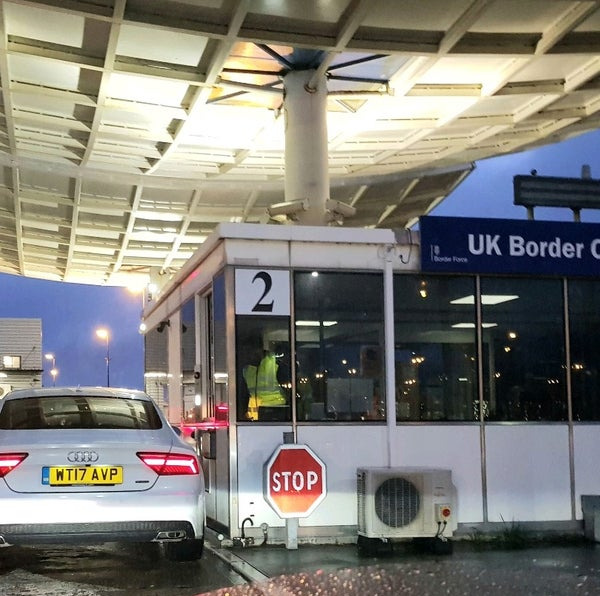
UK and France reach agreement to allow French and other EU residents to travel if they have a negative COVID-19 test. (Photo: AFP)
Paris, December 23 (RHC)-- France reopens its borders to passengers from the United Kingdom on Wednesday, ending a blockade intended to stop the spread of a new coronavirus variant, but which has held up thousands of lorries before Christmas.
Much of the world shut its borders to Britain after a significantly more transmissible mutated coronavirus variant was discovered spreading swiftly across southern England.
With queues of trucks snaking to the horizon in England and some supermarket shelves stripped just days before Christmas, British Prime Minister Boris Johnson scrambled to get French President Emmanuel Macron to lift a ban on freight from Britain.
Late on Tuesday, a deal was reached with Paris to allow French and other EU residents to return home, providing they have a negative COVID-19 test that is less than 72 hours old. French Transport Minister Jean-Baptiste Djebbari confirmed that air travel, boats and Eurostar trains would “resume service as of tomorrow morning.” “French nationals, people living in France and those with a legitimate reason will have to be carrying a negative test,” he said.
Later on Tuesday the UK announced it had reached an agreement with France to allow lorry drivers stranded in the UK to leave, providing they take a rapid virus test. “All lorry drivers, irrespective of nationality, will require a lateral flow test. This can detect the new strain of Covid-19 and provide results in around 30 minutes, rather than the 24 hours required after a PCR test,” said the transport ministry, adding the deal would be reviewed on 31 December.
Britain said it would begin handing out tests at multiple locations on Wednesday but cautioned that the process would take time. “We’ll be making sure that tomorrow we’re out there providing tests,” UK Transport Minister Grant Shapps said. “This will take two or three days for things to be cleared.”
Earlier the European Commission advised that non-essential travel to and from Britain should be discouraged but said that people heading home should be allowed to do so, provided they undergo a COVID-19 test or quarantine for 10 days. However, border controls are governed by national policy, so each EU country can have its own rules.
Britain said 632 trucks were stacked up on the M20 motorway in Kent, southern England, and 2,188 at nearby Manston Airport, now being used as a giant lorry park. While trucks were still able to cross from France to Britain, they could not return so European truck drivers were extremely reluctant to travel.
Cases of the new strain have also been detected in some other countries, including Denmark and Italy. Experts said the prevalence in Britain might be down to better detection. Britain’s border crisis led to some panic-buying: shoppers stripped shelves in some supermarkets of turkey, toilet rolls, bread and vegetables.
While the government said there was enough food for Christmas, Tesco and Sainsbury’s both said food supplies would be affected if the disruption continued. Tesco said it had imposed temporary buying limits on some essential products.

